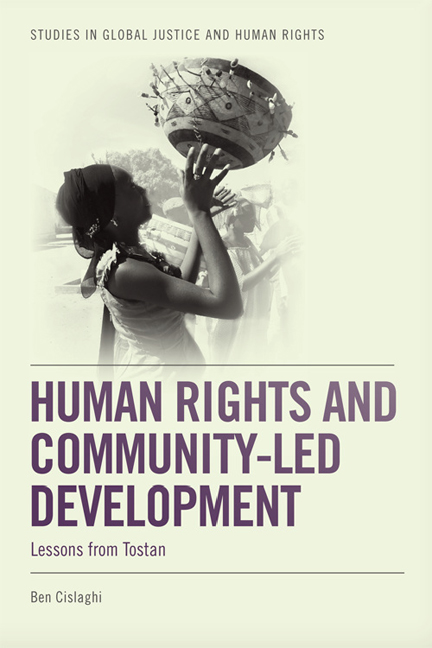7 - Dynamics of Social Change: A Model for Indirect Development Practitioners
Published online by Cambridge University Press: 29 April 2021
Summary
INTRODUCTION
This chapter looks at how human rights education contributed to social change processes in the community of Galle Toubaaco. The first section analyses how Tostan's pedagogical approach played a key role in motivating participation and challenging participants’ understanding of their local social reality. I argue in particular that the pedagogy played a key role in unleashing participants’ alternative understandings of their reality. The second section explores the substantive content of the programme, arguing that human rights provided an abstract knowledge that contributed in posing useful problems to participants. The third section explores how participants made sense of that knowledge together, women and men, and discusses how their interactions were particularly significant for the processes of reconceptualisation of mutual roles and relationships. The fourth section explores the cognitive processes that explain the participants’ reaction to a diverging reality, and the fifth section (on the capacity to aspire) links new cognitive understandings to the capacity of imagining alternative courses of action diverging from a repetition of the past. Together with capacity to aspire, participants developed other key capabilities that fostered their community's empowerment, discussed in the following two sections in the chapter.
The next section offers an understanding of how participants shared the new knowledge with other community members, by looking at the interaction between two ‘communities of practice’: the class and the village. The final section argues that Tostan's ‘indirect’ approach to development was a catalyst for the dynamic of social change analysed in this chapter. By respecting community members’ agency, the programme helped them develop the capabilities they needed to realise their potential for leading their human development.
THE PEDAGOGICAL APPROACH OF THE HRE PROGRAMME
Tostan's Freirian pedagogy worked as a key motivator of social change because it allowed participants to experience in class new roles, e.g. roles of talkers and decision-makers. The Freirian approach presented content critically to participants, leaving them the task of making sense of the abstract knowledge in local terms. In so doing, participants’ concerns emerged from the dialogue: the themes that mattered to them became objects of discussion, rather than abstract content. Norms of silence about certain topics were challenged and the status quo could be looked at critically.
- Type
- Chapter
- Information
- Human Rights and Community-led DevelopmentLessons from Tostan, pp. 213 - 236Publisher: Edinburgh University PressPrint publication year: 2017



